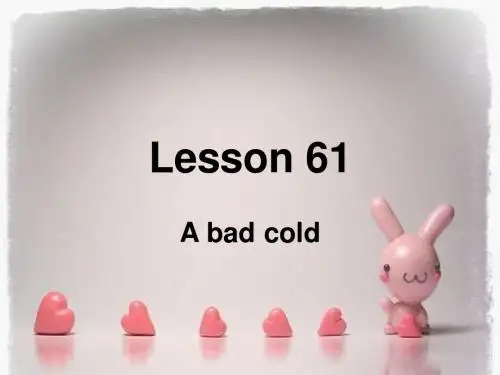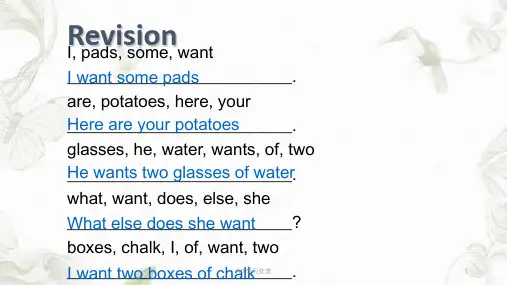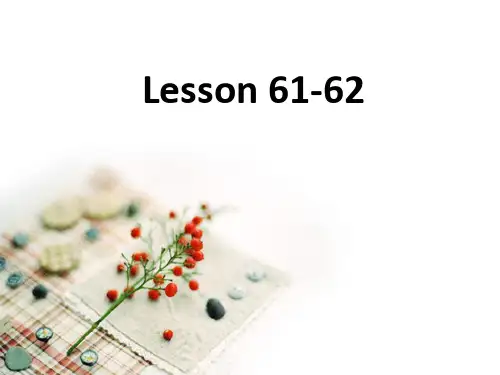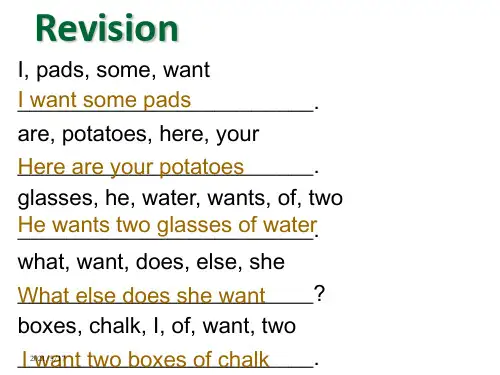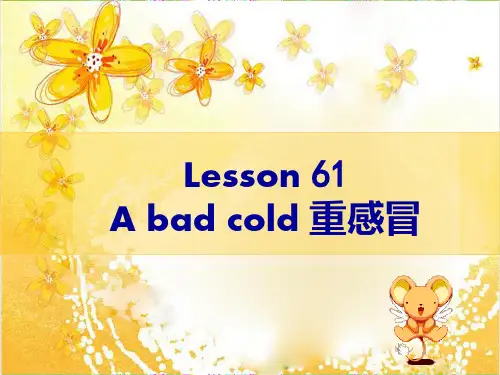Have a +疾病 :表示患有某种疾病
stomachache
ቤተ መጻሕፍቲ ባይዱ
toothache temperature/fever
earache
headache
cold
Have
flu
measles
mumps
• 这样的动词有:bring, give, lend, owe, pay, sell, send, show, take等。
• I buy her a gift. • 当间接宾语后移时,间接宾语前需带介词 for,表示间接宾语是动作的接受者。 • I buy a gift for her.
• 这样的动词有:buy, choose, cook, find, get, keep, make, order, prepare和sing等。
• • • •
show me your tongue. 双宾语 主语+谓语+间接宾语+直接宾语 该句型的谓语动词是双宾动词,这种动词 后面所接的成分有人又有物。 • “人”指动作的接受者,称作“间接宾 语”, • “物”表示动作作用的对象,是动作的承 受者,称作“直接宾语”。 • • 间接宾语和直接宾语合起来称为双宾语。
• He brings me cookies every day. • He shows the guard his passport.
• 当间接宾语后移时,间接宾语前需带介词to, 表示间接宾语是动作的接受者。 • He brings cookies to me every day.
• He shows his passport to the guard.
Lesson 61-62
• He’s in bed.
